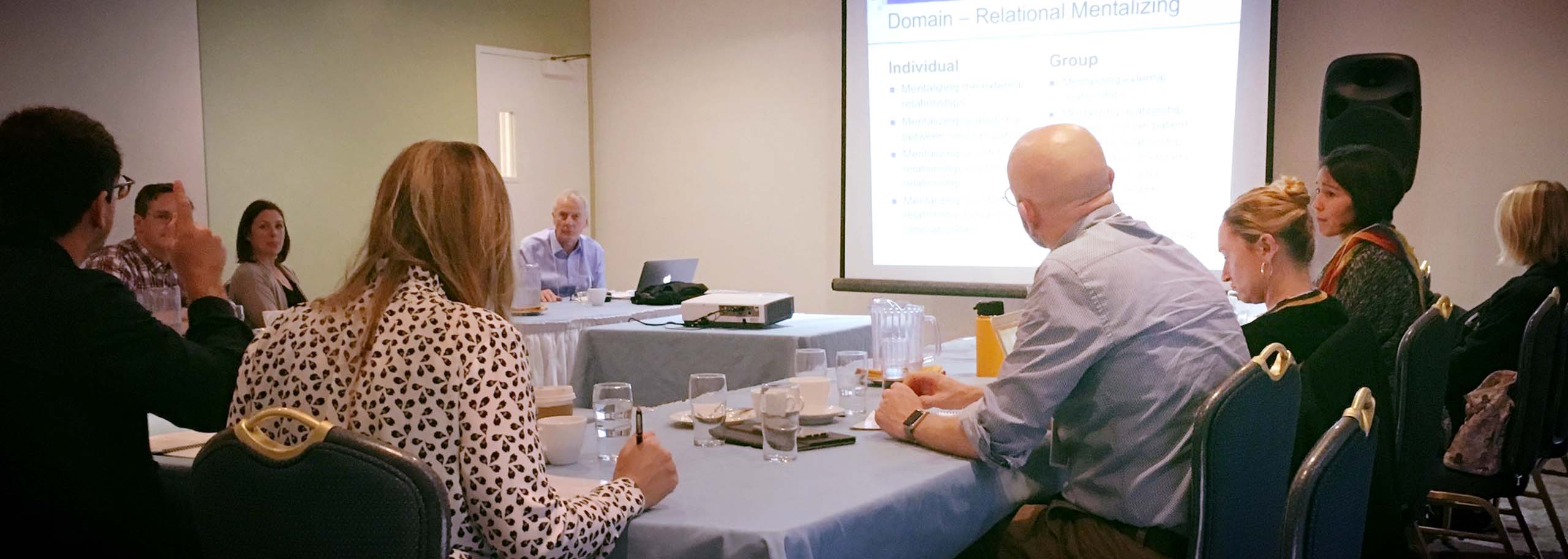About Us
The Mentalizing Initiative is the first program dedicated to the delivery of mentalization based therapy on the West Coast.
It began at the University of California, Los Angeles in 2006 to address a commonly found gap in training related to personality disorders for residents. Originally called the Borderline Personality Disorder Initiative, the program annually trained five resident physicians in Mentalization Based Therapy, while administering an eighteen month treatment program for those with bpd. In conjunction with the Anna Freud Centre, the BPDI hosted annual intensive trainings for practitioners in a variety of community settings. Since its inception, the BPDI and now the MI, have trained over 1000 practitioners in Mentalization Based Therapy across the world.

Over time as trainees from the program began to establish practices in the community
a core group of clinicians devoted to promoting implementation of mentalizing treatments on the West Coast developed. Recognizing a similar gap in current knowledge and effective treatments related to personality disorders existed in the community, the Mentalizing Initiative, a 501(c)3 non-profit was established in 2018. MBT was originally designed to target personality disorders, but has subsequently been shown to be effective in a variety of patient populations such as eating disorders, families, at-risk adolescents, and victims of trauma. As a non-profit organization, the Mentalizing Initiative recruits funding to provide scholarships to practitioners who work with underserved and high-risk populations, such as community mental health clinics, inner-city schools, and veterans. The mission of the MI is to increase the number of clinicians trained and available to effectively treat those suffering with difficult relationships with self and other.
Our Mission
Training more clinicians to effectively treat seriously underserved patient populations whose suffering lies in their difficult relationships with self and other.
The Mentalizing Initiative (MI) and its current team originally developed from a training clinic at UCLA. Since 2006, we’ve provided basic and advanced training to hundreds of practitioners. In 2018, we established the Mentalizing Initiative as a non-profit 501(c3) to further our training mission.
Goals
Increase
The number of clinicians trained in MBT and other evidenced based treatments known to increase the capacity for mentalizing
Improve
The quality of care provided to patients suffering with mentalizing vulnerabilities
Impact
To improve patient mental health and well being and decrease the utilization of high-cost tertiary care
Mentalizing is the ability to make sense of our actions and feelings and those of others. It is the foundation of our ability to regulate emotions and impulses, and to understand our minds and others. In essence, it is our ability to hold mind in mind; the heart of emotional intelligence; and the key to interpersonal relationships.
Mentalizing helps us to:
- Have a more accurate understanding of what is taking place between people
- Understand ourselves, who we are, our preferences, our own values, etc
- Communicate well with our family and close friends
- Regulate our own feelings
- Regulate other people’s feelings
- Avoid misunderstandings
- See the connection between emotions and actions more easily, which will help us to escape destructive patterns of thoughts and feelings.
Having improved mentalizing ability means:
- Experiencing a more stable sense of who you feel you are
- Being less likely to let emotions get the better of you
When emotions do get the better of you, you are able to regain your composure more quickly.
This should mean that you become stronger emotionally, engage in harmful behaviours less, are less likely to get into interpersonal conflicts, and are better able to deal with any conflicts that do arise.

Ready to help?
The Mentalizing Initiative provides training for mental health clinicians that work with community mental health programs. You can help support us by donating or volunteering to assist in our programs.

